What Is it Like to Live With COPD? – Results From the 2019 COPD In America Survey
More than 2,000 people with COPD participated in our COPD In America survey to share more about life with the condition. Respondents opened up about their diagnosis journey, their relationships with their healthcare providers, treatment experiences and satisfaction, relationships with family and friends, and the daily struggles of living with COPD. In addition to frustrating symptoms, many respondents struggle with support from others and the stigma that they face when it comes to oxygen wear or past smoking habits.
The most common COPD symptom
A majority (91%) of respondents reported that their COPD is moderate (46%) or severe (45%). For these people, shortness of breath and fatigue were the most common symptoms experienced. It’s no surprise that these symptoms are also the most frustrating. These symptoms interfere with daily activities and occur often even with proper treatment and medications for COPD.
Other conditions and comorbidities with COPD
In addition to a COPD diagnosis, most (94%) also experience other conditions and comorbidities that bring about a new set of daily challenges. These conditions may occur as a result of COPD, in addition to COPD, or due to similar risk factors that cause COPD like smoking.
Support and social life with the condition
Although 2/3 of patients have someone involved in their care, there is still a lack of support for many. Over 20% expressed a need for emotional support, help with household duties, and finding coping strategies. Additionally, COPD can be very lonely and over half of the respondents reported that they feel less social because of the condition.
Judgement around COPD and oxygen use
Oxygen therapy or supplemental oxygen delivers an extra supply of oxygen into the body to help improve symptoms of COPD. It is a common treatment for COPD, yet many are judged and stigmatized by the mere sight of it. Additionally, there are challenges when it comes to running errands, traveling, or attending social events with oxygen. Bracing those challenges contributes to the loneliness and isolation that so many people with COPD may feel.
The smoking stigma
Smoking is the number one risk factor for COPD, but not everyone who has COPD is a former smoker. For both smokers and non-smokers alike, there is a stigma and blame that comes with a COPD diagnosis. Patients express that outsiders tend to feel they brought COPD onto themselves and even say 'I told you so' to those suffering from this condition. This is not helpful for those with COPD who need support from the closest people in their lives.
The COPD in America 2019 survey was conducted online from April through July of 2019. The 2,007 patients who completed the survey have been diagnosed with COPD; chronic obstructive pulmonary disease, emphysema, or chronic bronchitis.
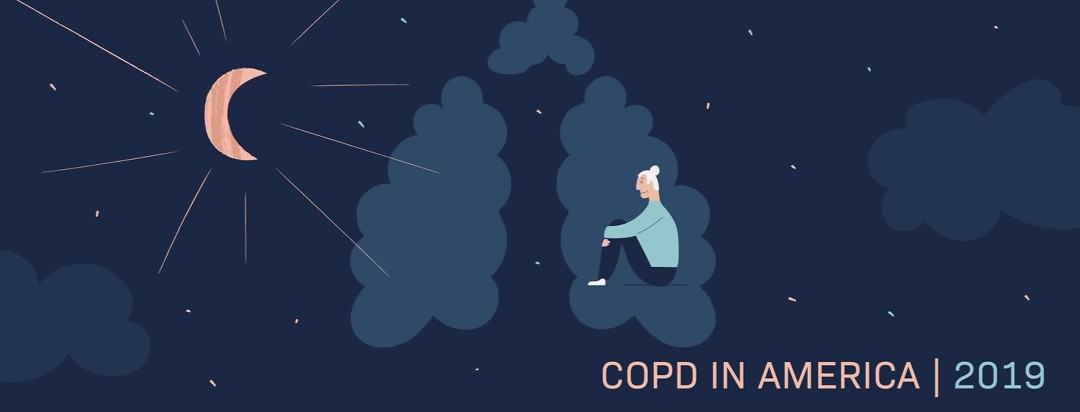
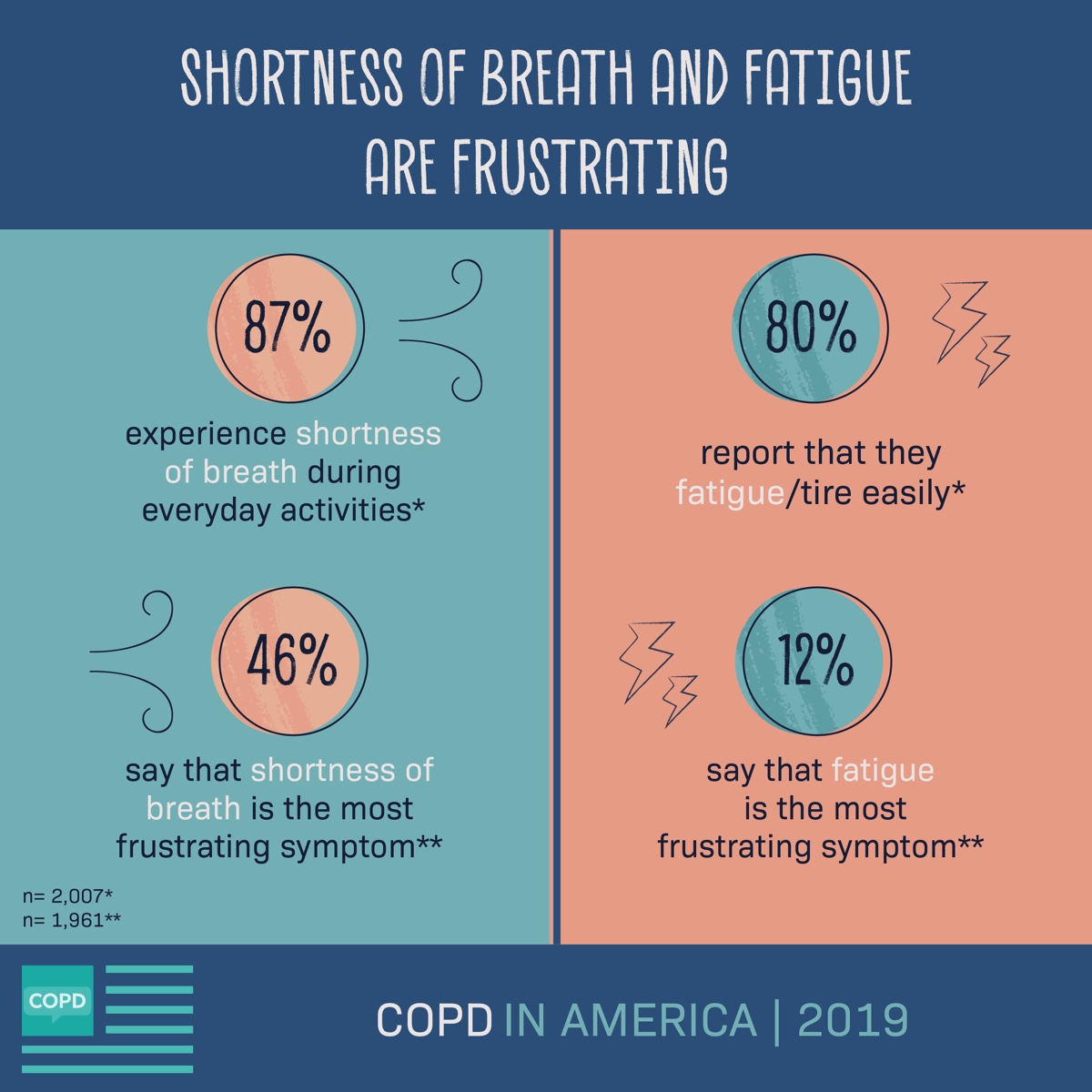
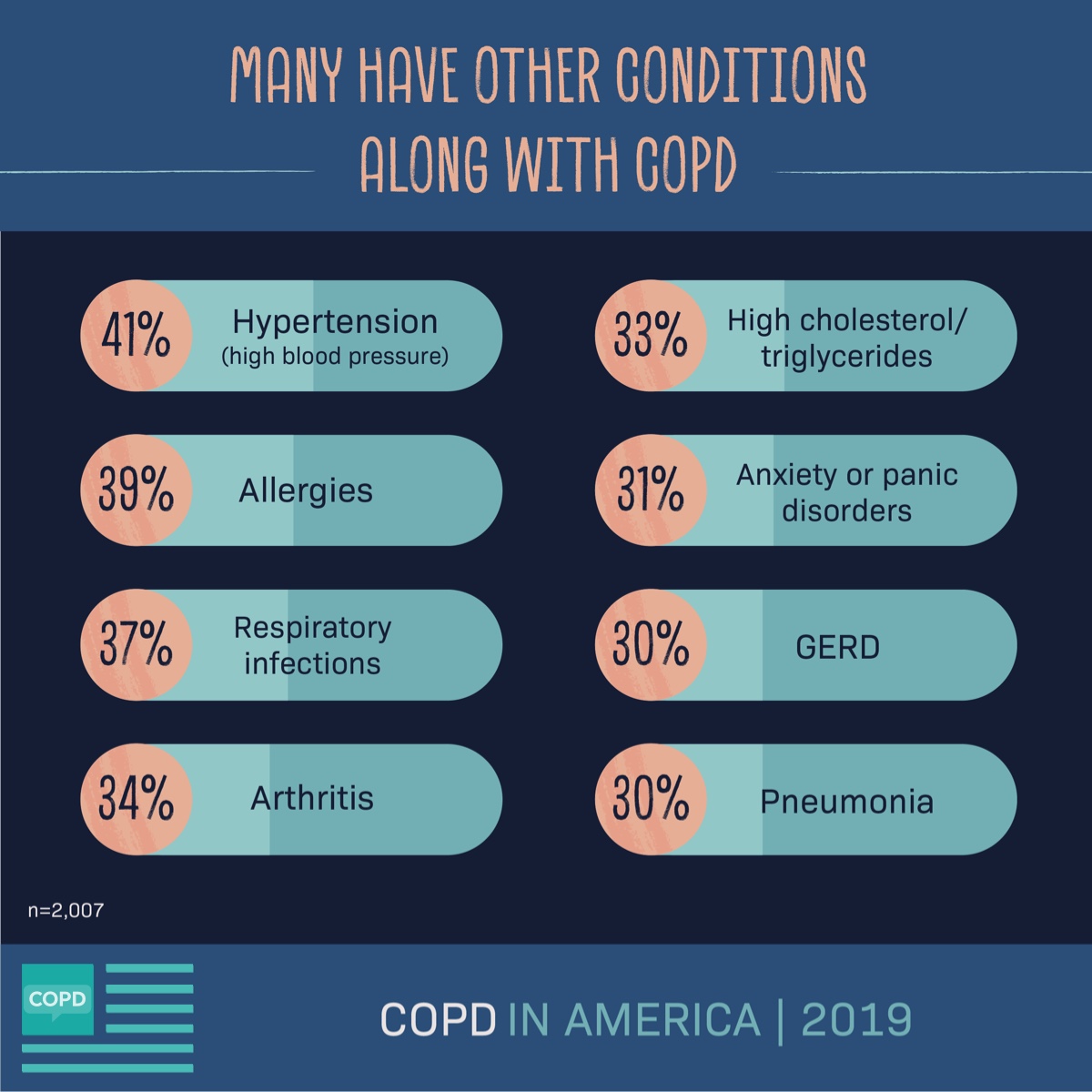
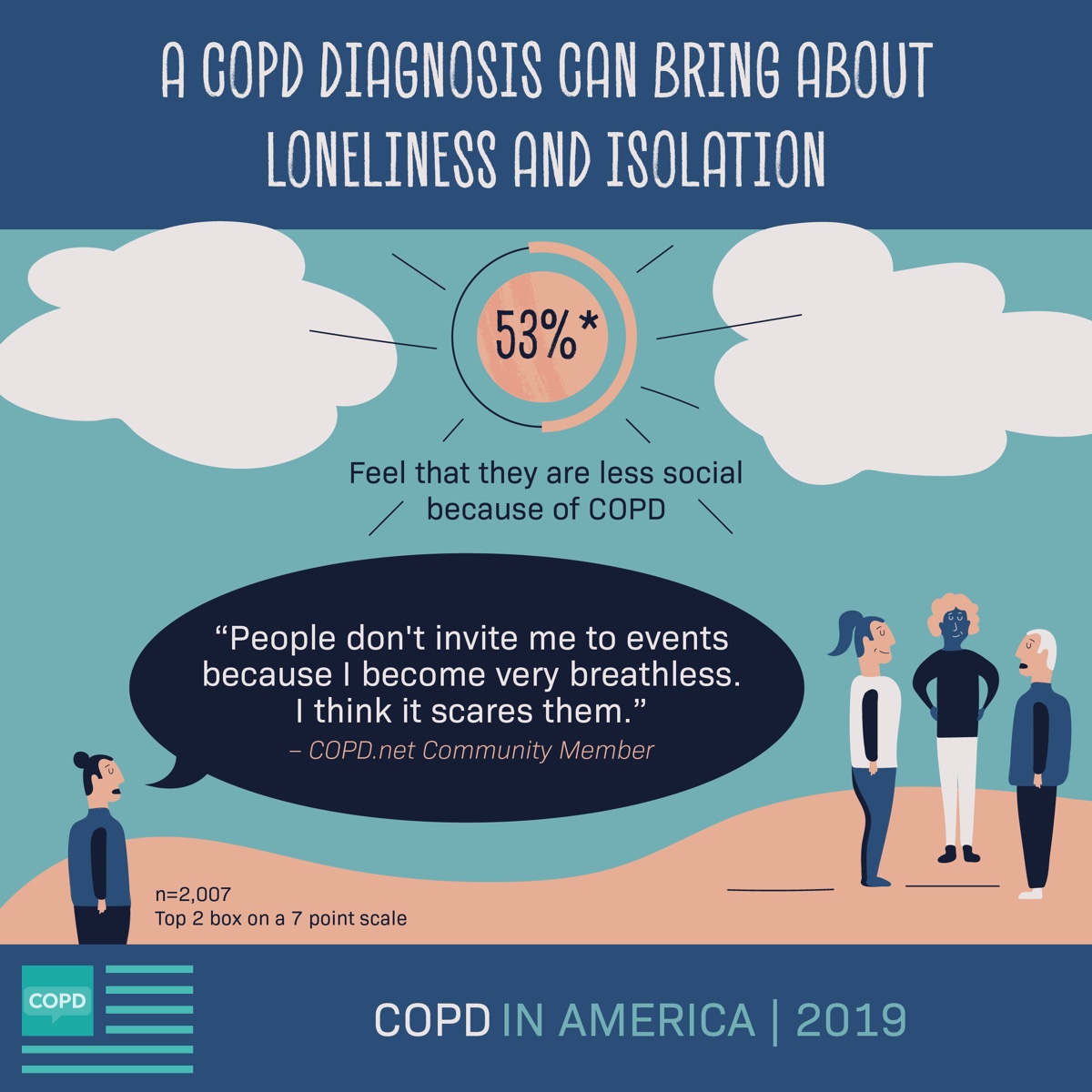
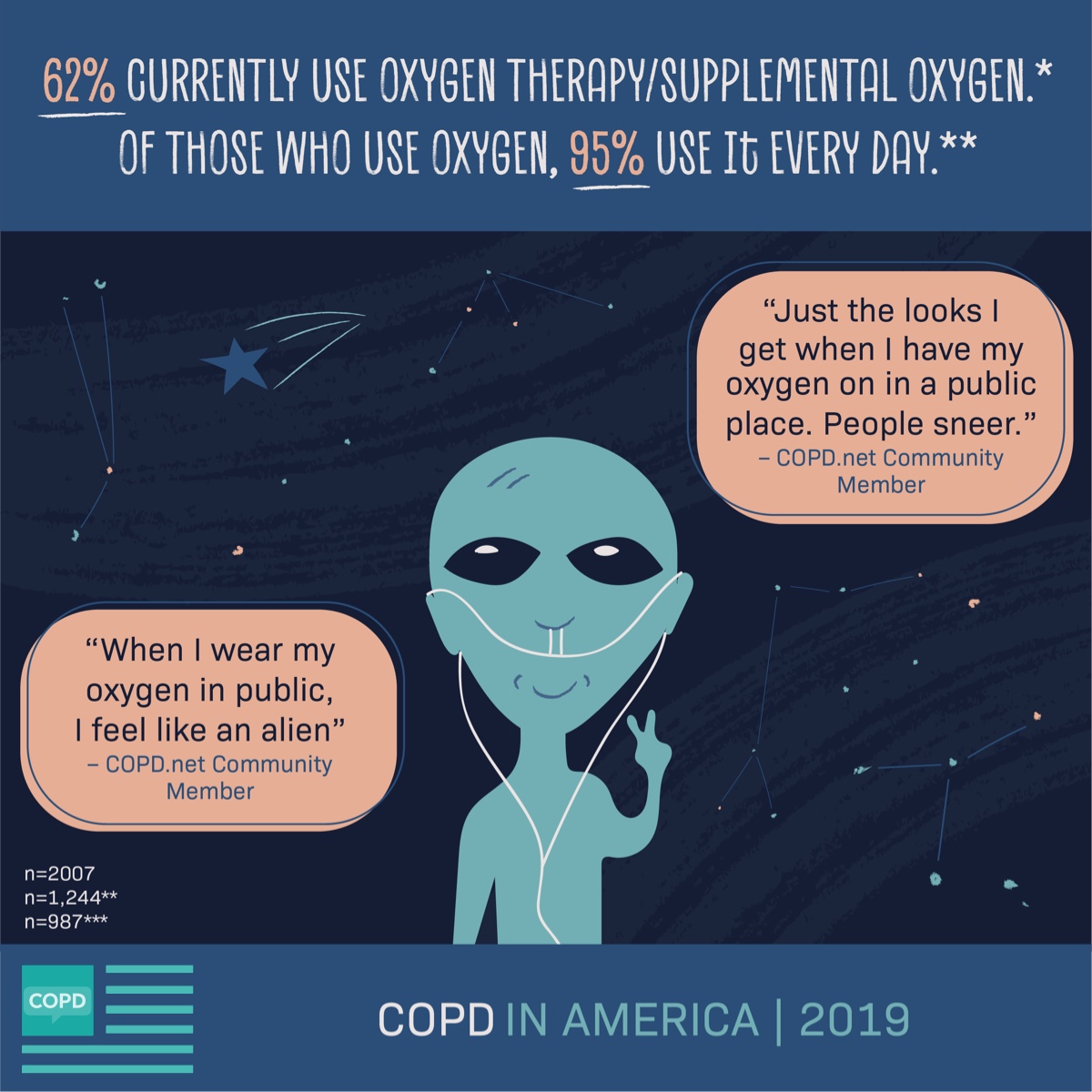
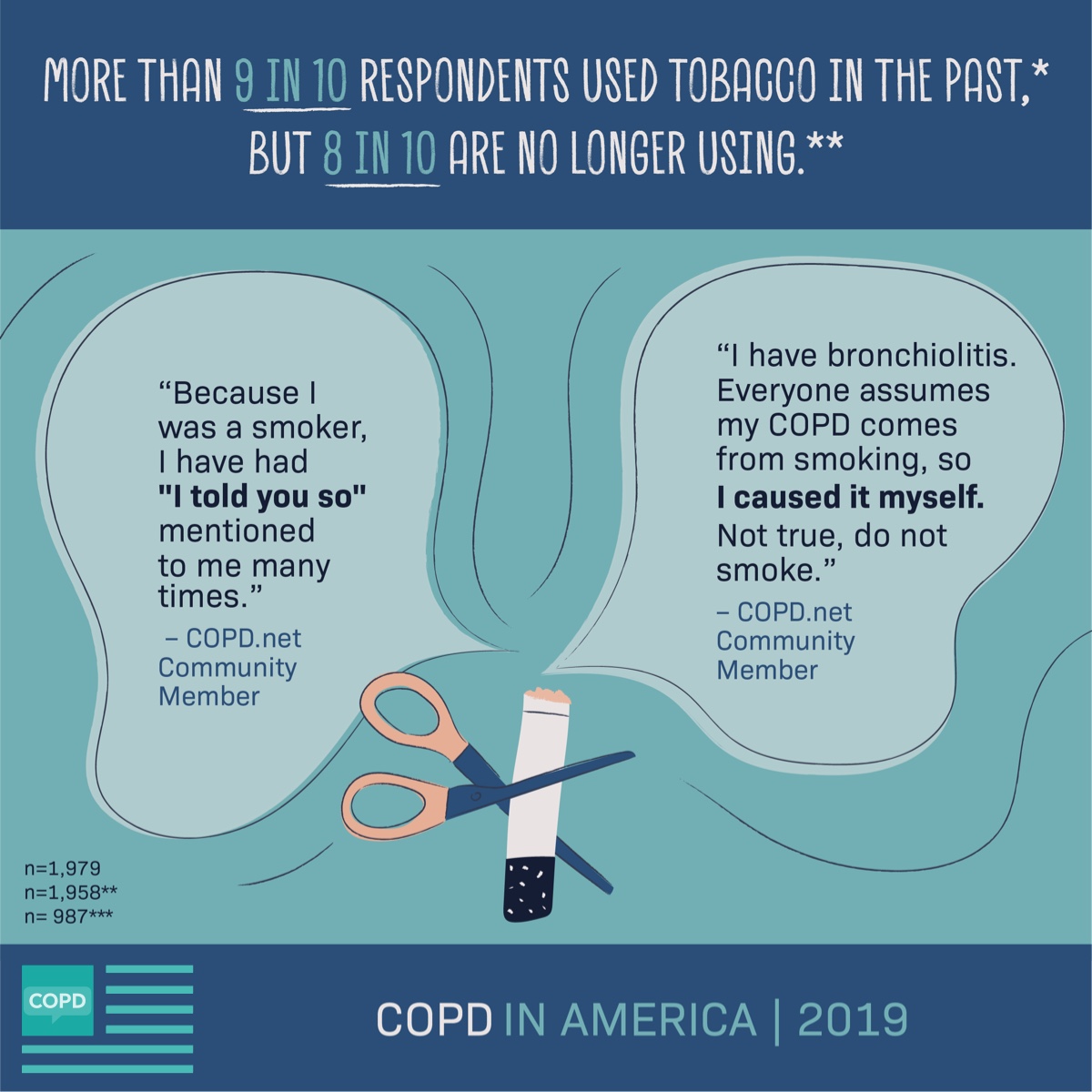
Join the conversation